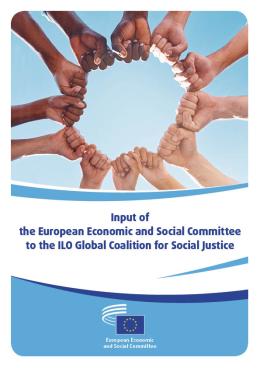European Economic
and Social Committee
Asia and Pacific
In Asia, the EESC maintains relations with civil society organisations in China, Japan, Singapore, South Korea and Vietnam.
A Civil Society Round Table with China is in place: it was set up in 2007 following the 9th EU-China Summit and convenes once a year.
A Follow-up Committeewith Japan was established in February 2009 to monitor the civil society dimension of EU-Japan relations and promote cooperation between the EESC and business, workers', environmental and consumer organisations and other major civil society organisations in Japan. An EU-Japan Domestic Advisory Group was established under the EU-Japan Economic Partnership Agreement, which assigns a monitoring and advisory role to civil society under its trade and sustainable development chapter.
The EU has concluded free trade agreements with the following Asian countries: South Korea (2011), Japan (2019), Singapore (2019) and Vietnam (2020). These agreements are characterised by the inclusion of trade and sustainable development chapters, and give the EESC and other civil society organisations – together with civil society organisations in the partner countries – a formal role in monitoring their implementation and advising the relevant political authorities in the areas of environmental, social and labour standards and other matters which are of direct relevance to civil society, through the Domestic Advisory Groups (DAGs). Two to three meetings of the EU DAGs are held in each year, and a joint meeting takes place once a year.
In addition, the EESC engages with civil society in other Asian countries and in relevant international events on an ad hoc basis.

